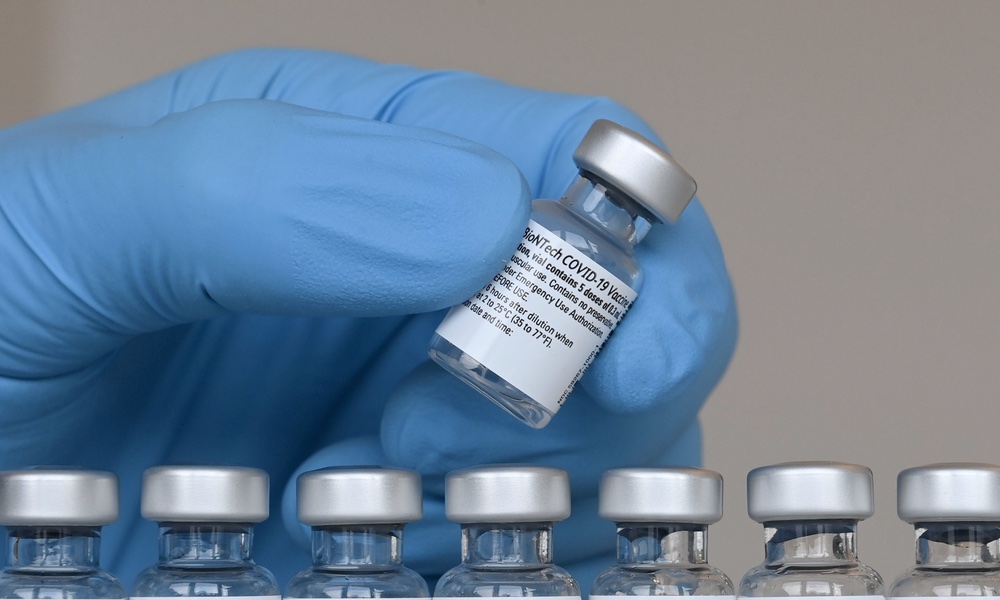Viruses are masters of mutation and SARS-CoV-2, the virus that causes COVID-19, is no exception. New variants continue to emerge, potentially threatening the effectiveness of vaccination efforts. Scientists have begun to take a closer look at humans' immune response to the vaccine and its effectiveness against variants of SARS-CoV-2.
Public health officials have been particularly concerned that newer variants, such as B.1.351 from South Africa, may be resistant to neutralizing antibodies produced by infections with earlier variants, leaving those who have already contracted the virus vulnerable to another infection. They have also been concerned that our current vaccines, developed using the spike protein of the original coronavirus variant from Wuhan, China, may be ineffective against newer variants.
To begin to answer these questions, a team at the Fred Hutchinson Cancer Research Center in Seattle tested the blood from people who had recovered from SARS-CoV-2 infection to see if the antibodies in their blood serum were able to neutralize B.1.351 variants after the donors had been vaccinated. They compared these results to findings in donors who had not previously been infected, but who also received the vaccine.The first dose of vaccine boosted the number of neutralizing antibodies against all the variants as much as 1,000-fold.
Having an idea of just how much a single dose protects someone who was previously infected could mean there’s an opportunity to extend the vaccine supply and get more people largely vaccinated faster, Andrew McGuire, the lead author on the study, said. “It may mean something like delaying the second dose in someone who has already tested positive, but you have to be careful about it.”
The Fred Hutchinson team collected blood samples before and after 15 people previously infected with SARS-CoV-2 were given each of the two doses of either the Pfizer or Moderna mRNA vaccine. Blood samples from 13 participants who had not been infected were also collected before and after they received each dose of one of those two vaccines.
Serum from both groups was tested for neutralizing antibodies against the B.1.351 variant, the original Wuhan-Hu-1 variant and SARS-CoV-1, a related coronavirus that first appeared in 2003.
“We picked SARS-CoV-1 because it is different enough from SARS-CoV-2,” McGuire, an assistant professor of immunology and vaccine development at Fred Hutchinson Cancer Research Center, explained. “The rationale was there are these emerging variants of concern, and we don’t know what the next one will look like.”“...[T]here are these emerging variants of concern, and we don’t know what the next one will look like.”
The serum was mixed in vitro with harmless viruses engineered to carry the SARS-CoV-2 spike protein, what the virus uses to infect cells in the lungs and nose. Different concentrations of antibodies were tested to see how well they prevented the infection of cultured human cells by SARS-CoV-2 variants.
Giving just the first dose of vaccine to those previously infected with SARS-CoV-2 boosted the number of neutralizing antibodies against all the variants as much as 1,000-fold. A second dose of the vaccine, also given to those who were previously infected, did not increase the amount of neutralizing antibodies any further.
The findings suggest that stockpiles of the mRNA vaccines could be stretched farther if necessary. They also seem to indicate that, for the moment at least, people who are vaccinated will be largely protected from the currently known variants.





